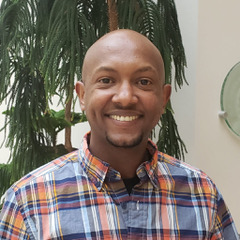
Genomic Imbalance and 3D-Genome Organization in Intellectual Disability
Description
Special Seminar with Hiruy Meharena, PhD
Zoom Webinar Link: https://mit.zoom.us/j/99108912177 (MIT Credentials required)
Genomic Imbalance and 3D-Genome Organization in Intellectual Disability
Genomic Imbalance which includes aneuploidies and copy number variants (CNVs) are one of the leading causes of intellectual disability, which includes Down syndrome (DS) and Autism Spectrum Disorder (ASD). Additionally, rare mutations that disrupt the 3D-genome organization have also been associated with intellectual disability. While these disorders display similar clinical features, the molecular mechanisms underlying this convergence remains unclear. We find that neural progenitors harboring trisomy 21, which leads to Down syndrome, exhibit global 3D-genome reorganization, disruption of the nuclear lamina, and genome-wide chromatin accessibility changes. The genome-wide transcriptional and nuclear-architecture changes observed in trisomy 21 harboring neural progenitors are characteristic hallmarks of senescent cells. We find that treatment of trisomy 21 harboring neural progenitors with senolytic (anti-senescence) drugs alleviates the transcriptional and cellular changes associated trisomy 21. Additionally, we find that an ASD associated mutation on the 3D-genome organizing gene, CTCF, induces a transcriptional profile similar to those observed in neural progenitors derived from individuals with Down syndrome, indicating that neural progenitor senescence maybe a cellular hallmark of intellectual disabilities. In conclusion, our findings indicate that senescence plays a key role in neurodevelopmental disorders associated with intellectual disabilities and pharmacologically targeting senescence provides an exciting therapeutic avenue for treating individuals with DS and other intellectual disabilities caused by genomic imbalance.
Zoom Webinar Link: https://mit.zoom.us/j/99108912177 (MIT Credentials required)

